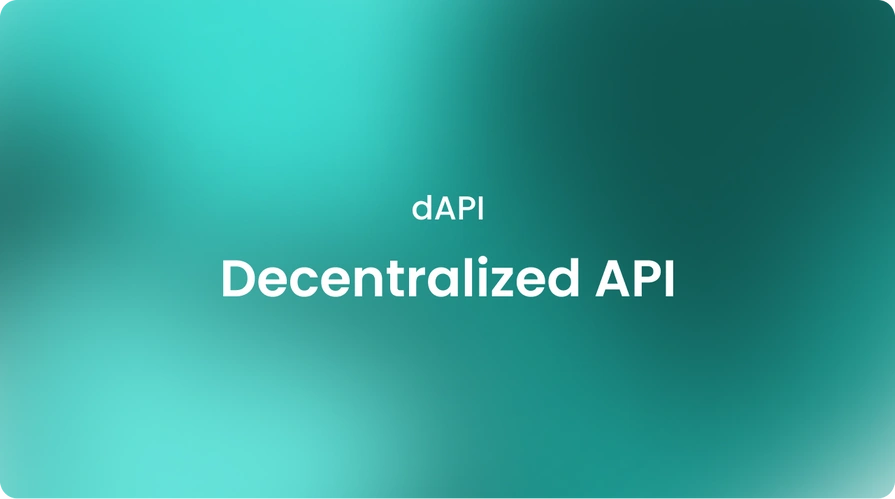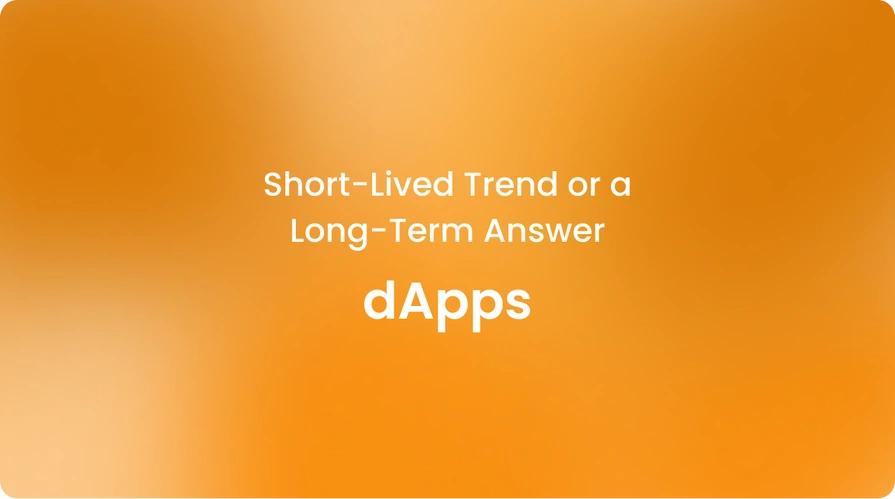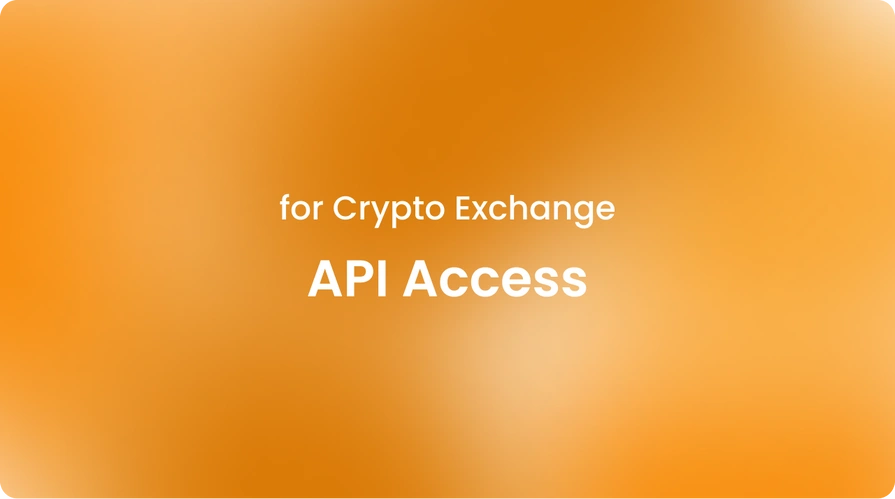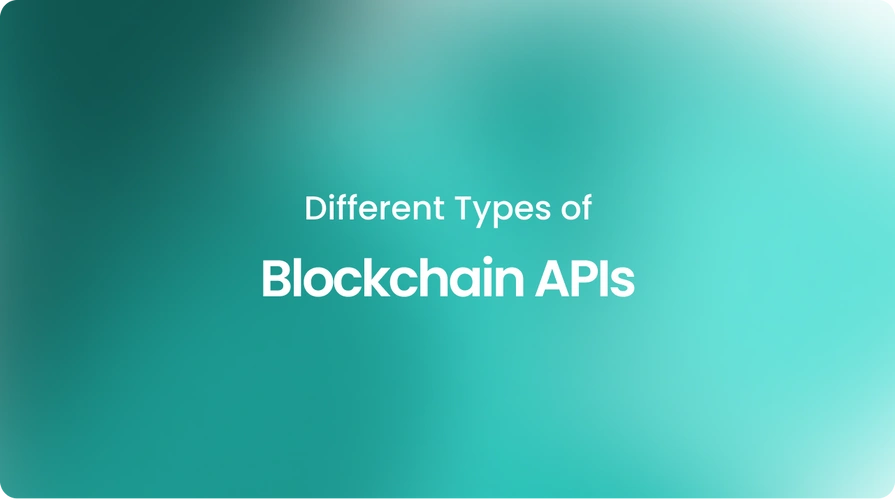|technology, knowledgehub
What Is a Decentralized API (dAPI)?

A decentralized API, also known as a dAPI, provides an alternative way for applications to connect to external data without relying on centralized servers. By utilizing blockchain technology, dAPIs allow decentralized applications (dApps) to securely retrieve off-chain data.
Join us in this blog as we explore decentralized API, its advantages and disadvantages, blockchain development with dAPI, how to use it, and more. But first, it is vital to understand what API and API3 are. Let’s start to explore!
What is an API?
In simple terms, APIs serve as intermediaries between applications, facilitating communication between client and server applications. When one application requests data from another, it sends a request to the API endpoint.
One entity manages a single gateway that provides functionality to external users through a centralized API. Think of it like a shop: you go to the storefront to browse products and make purchases.
If you want to learn more about APIs in the crypto ecosystem, make sure to check out “API access for your crypto exchange," “API in a crypto wallet," and “Types of Blockchain APIs” for more details.
There are also downsides to this model. If the shop closes, you can no longer access the goods, and the owner has full control over what you can and can't do.
Decentralized systems flip this model on its head. With no central point of failure or authority, how can dApps connect to off-chain data? This is where dAPIs and API3 come in.
What is API3?
API3 focuses on building decentralized APIs. Their protocol allows third parties to run "airnodes" APIs that dApps can query to retrieve off-chain data without compromising blockchain networks' censorship resistance.
API3 manages the incentives, governance, and economic model for their network. Applications integrated with API3 can confidently expect to receive the requested information, rewarding data providers for sharing accurate and available data.
Users can create, manage, and access dAPIs in a decentralized marketplace thanks to API3. Let’s continue by exploring how decentralized API works!
How do decentralized APIs work?
A dAPI resembles a traditional API in that it abstracts away complexity and provides a standardized interface. But instead of connecting to a single server, dAPIs distribute requests across multiple nodes running the API3 protocol.
When a dApp needs outside data, it queries the dAPI smart contract using a unique ID. The contract routes the request to the API3 network, where "provider" nodes in the blockchain containing the actual data compete to find the answer.
Then the dAPI sends the response back to the requesting dApp, ensuring blockchains remain freely accessible without depending on centralized intermediaries.
By running on distributed infrastructure with economic incentives, dAPIs ensure reliability, availability, and transparency, which are critical components for building robust dApps.
How do dAPIs solve the API connectivity problem?
How can dApps augment blockchain data with off-chain facts without compromising the core principles of decentralization? Traditional centralized oracles undermine the censorship resistance of blockchains. Decentralized oracle proposals typically lack user-friendly interfaces.
Enter dAPIs. By abstracting the complexity of the Oracle network, dAPIs allow developers to easily retrieve and validate external data programmatically while maintaining blockchain security and transparency.
With dAPIs, users can process requests and retrieve data without relying on centralized servers controlled by single entities. The API3 protocol enables anyone to provide data streams as dAPIs, freeing developers to focus on building applications rather than maintaining infrastructure.
Lowering barriers to integrating essential off-chain services expands the possibilities of decentralized applications. By enabling this feature, dAPIs solve the API connectivity problem.
What are some examples of decentralized APIs?
Here are some common examples of decentralized APIs:
- Band Protocol focuses on providing decentralized data services for blockchains.
- Chainlink is a decentralized Oracle network that connects smart contracts to off-chain data, payments, and more. It powers oracles for a variety of major projects.
- API3 is a first-party Oracle platform that allows anyone to build, manage, and monetize dAPIs on their network.
- Witnet focuses on decentralization, transparency, and accuracy. It uses a network of notaries to aggregate results.
- Oracle Hub provides price feeds and a framework for building custom decentralized oracles on substrate-based blockchains, such as Polkadot.
As the decentralized application ecosystem matures, more specialized decentralized data connectors will emerge to power innovative blockchain applications.
Advantages and disadvantages of using a decentralized API
Advantages of dAPI
- There is no single point of failure or control
- Transparent pricing and service levels
- Censorship resistance and availability
- Improved security via decentralization
- Easy integration for developers building apps
Disadvantages of dAPI
- When comparing additional complexity with centralized alternatives
- Immature technology with potential bugs and vulnerabilities
- Rely on stable and secure underlying blockchain networks
- The learning curve for using decentralized infrastructure
The advantages of decentralization make dAPIs a compelling proposition for anyone seeking the benefits of blockchain without persistent connectivity issues.
How are dApps created using blockchain APIs?
Building on the concepts introduced earlier, there are some core components involved in constructing decentralized applications with the help of blockchain APIs.
Here are some of them:
Retrieving data from the blockchain
DApps interact with blockchains via dAPIs to retrieve on-chain transaction details such as balances, transaction statuses, contract state variables, and more.
Data processing
Through off-chain transaction computation and processing, data retrieved from dAPIs powers application logic and frontend interfaces.
Building smart contracts
API integrations allow developing, deploying, and interacting with smart contracts programmed with languages.
Sending transactions
DAPIs generate and broadcast transactions to the blockchain network.
Creating blockchain applications
Bringing together the above elements can create fully featured dApps that unlock new use cases, leveraging the security and capabilities of decentralized networks.
Blockchain development with decentralized APIs (dAPI)
DAPIs provide an accessible and easy-to-use interface for connecting decentralized applications to both on- and off-chain data without relying on centralized intermediaries.
This gives developers the ability to freely integrate vital outside information and services without compromising a blockchain network's core attributes.
Platforms like API3 are standardizing how external parties can create and manage decentralized data streams as services through their Oracle protocol.
Abstraction layers like dAPIs enable dApp builders to prioritize innovation over infrastructure maintenance, pushing the boundaries of what can be accomplished with decentralized technologies.
In the future, as the ecosystem further matures, dAPIs can underpin sophisticated applications across sectors like finance, governance, identity, and more. But for now, they offer an encouraging first step towards unlocking blockchain's full potential through open yet secure external connectivity.
How do I use a decentralized API?
To start building with dAPIs:
- Choose a one-stop-shop crypto service provider platform like Cryptobunq that offers tools for connecting to their decentralized Oracle network through standard API interfaces with crypto exchange API solutions.
- Review the supported data types and endpoints exposed by the dAPI smart contracts. Documentation will explain how to interact programmatically.
- Sign up for an account to authenticate requests and manage access controls.
- Initialize the dAPI in your smart contract or client-side app using the provided SDKs or libraries.
- Create data queries by calling dAPI methods and passing the required parameters as described in the documentation.
- To power your decentralized application logic, receive and process responses returned from the Oracle network.
- Integrate financial tokens like EURK euro stablecoin as needed for crypto payments, rewards, or another use case requiring crypto assets.
Cryptobunq is an expert crypto service provider that you can trust in the crypto and blockchain ecosystems. Apart from API solutions, you can benefit from other CBQ solutions such as tokenization, node as a service, crypto checkout and invoicing, custody and wallet, and crypto batch payments.
You can adapt your business and business projects to the future with Cryptobunq through all-in-one blockchain services. Check out our case studies to learn more about our services and expertise and get started!
The bottom line
Decentralized APIs pioneered by projects like API3 and Chainlink are revolutionizing how blockchain applications interact with off-chain data.
By removing reliance on centralized providers and introducing economic guarantees around validation, dAPIs ensure dApps have access to permissionless, immutable, and high-performance data streams.
With seamless integration and simplified development processes, the new wave of decentralized connectivity heralds an era of more complex yet trustless cross-chain applications.
Platforms that offer 'one-stop shops' housing tools across the dApp stack, from APIs to crypto wallets, will see the most traction from builders. Make sure to explore Cryptobunq and connect with API3 to start leveraging the full potential of Web3 through your own innovative projects. Contact us today!













